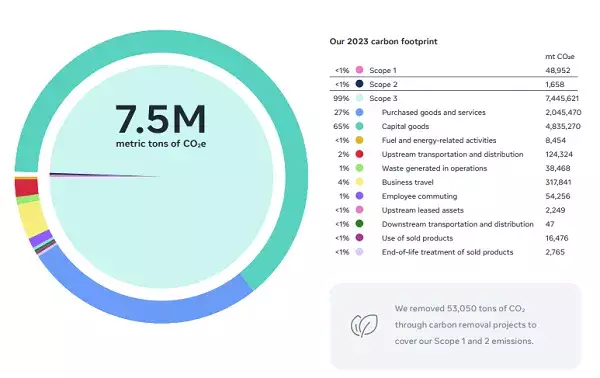Meta’s recent release of the “Responsible Business Practices Report” may appear as a comprehensive overview of the company’s operational strategies, societal contributions, and technological advancements. However, beneath the polished surface lies a complex narrative filled with both commendable intentions and potential pitfalls. The report, primarily focused on artificial intelligence (AI) development, delves into a wide array of topics—from environmental impacts to teen protection. This article aims to critically assess the nuances of the report and the implications of Meta’s strategic directions.
At the heart of Meta’s report is its substantial commitment to AI innovation. The company outlines its ambition to integrate generative AI models across various facets of its business, proclaiming a vision to democratize these advanced technologies. The notion of widening access to AI tools is commendable; however, the real challenge lies in execution. Meta warns against the widening divide between regions that do or do not have access to such advancements. Yet, the responsibility of reducing this digital inequality does not rest solely with Meta. There is a systemic need for collaboration between policymakers, educational institutions, and corporations to ensure equitable access. The report’s focus on accessibility raises questions: Is Meta genuinely committed to bridging this gap, or is it merely a strategic maneuver to position itself as a leader in AI technology?
In addition to AI, the report discusses Meta’s ambitions for the metaverse, portrayed as a novel frontier in social technology. The vision presented in the report indicates that Meta aims to transition from traditional 2D interfaces to immersive experiences that could redefine interpersonal engagement. However, this utopian portrayal of the metaverse overlooks critical concerns surrounding user safety, data privacy, and potential monopolization of the virtual space. As Meta continues to develop the metaverse, it must weigh the potential for societal benefits against the risks of exacerbating existing issues of mental health and digital addiction, which have already plagued social media platforms.
The report outlines Meta’s financial investments in privacy protection, totaling over $5.5 billion since 2019. This initiative is commendable, given the company’s tumultuous history regarding user privacy and data misuse. However, declaring a commitment to privacy protection is not sufficient; substantive change must also permeate the company’s culture and operational policies. Rhetoric alone cannot erase past mistakes or restore user trust. Meta’s ongoing efforts to integrate privacy into its product design will be scrutinized closely, as failure to uphold these principles could result in damaging outcomes, both reputationally and legally.
A salient point in the report is Meta’s engagement in political contributions through its federally registered Political Action Committee (PAC). While the company asserts that it supports candidates aligned with its public policy views and business interests, this practice raises eyebrows regarding ethical considerations. How can a tech giant maintain an innovative and socially responsible image while simultaneously aiding political campaigns? This duality presents a challenging narrative for Meta, as it looks to harmonize profit motives with genuine social responsibility. Transparency in these political engagements will be critical in maintaining user trust and corporate legitimacy.
Meta’s “Responsible Business Practices Report” serves as a reflection of the company’s ongoing journey toward responsible innovation. While it highlights significant strides in AI development, privacy measures, and ambitious visions for the metaverse, it also exposes the complexities and pitfalls associated with such innovations. As Meta seeks to position itself at the forefront of technological advancement, it must remain vigilant in addressing the ethical implications of its actions. Genuine responsibility requires more than lofty proclamations; it necessitates accountability, transparency, and a commitment to addressing the societal impacts of its technologies. Only time will reveal whether Meta can navigate this intricate landscape effectively, balancing ambition with genuine concern for its user base and broader society.


Leave a Reply